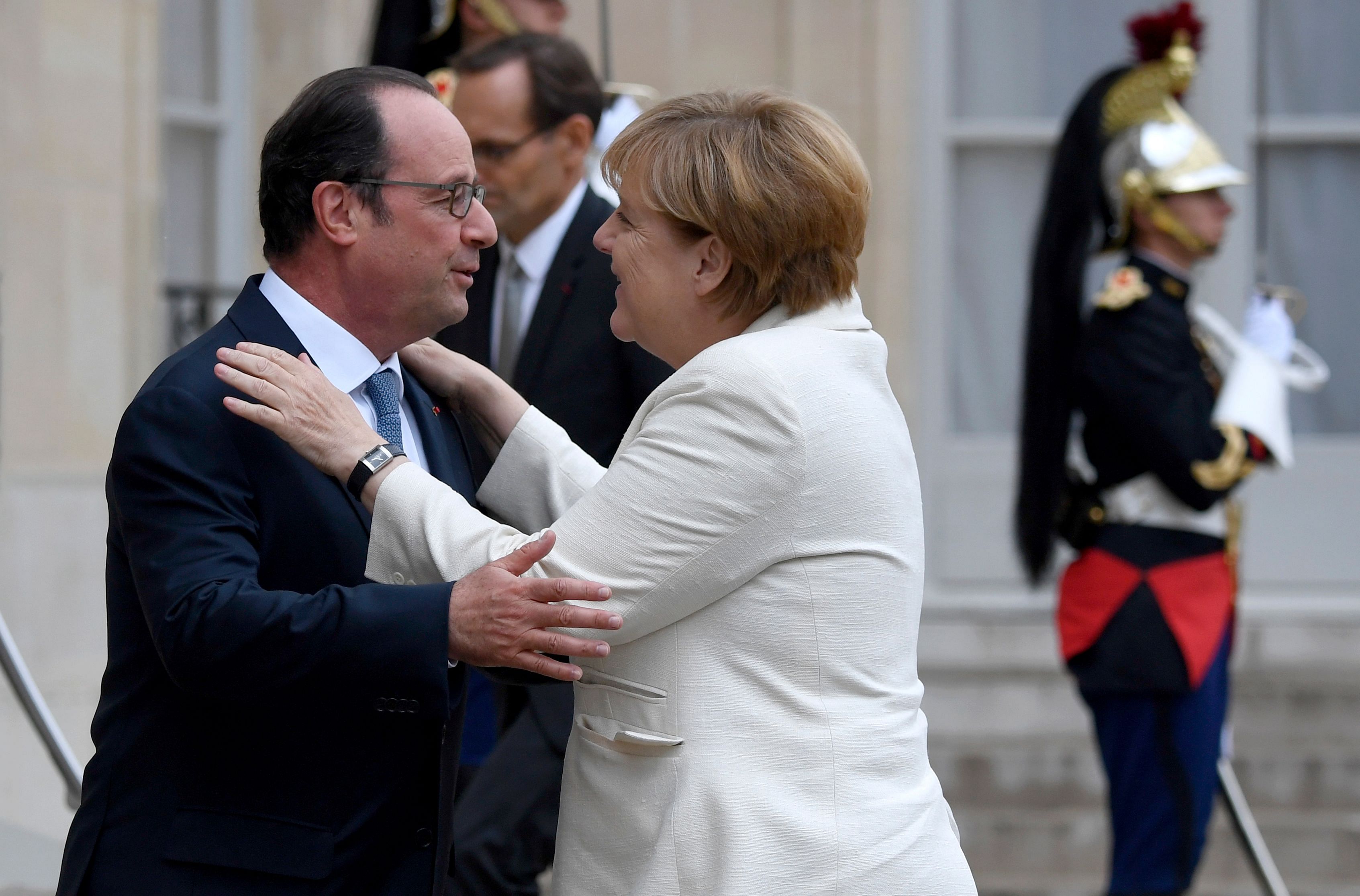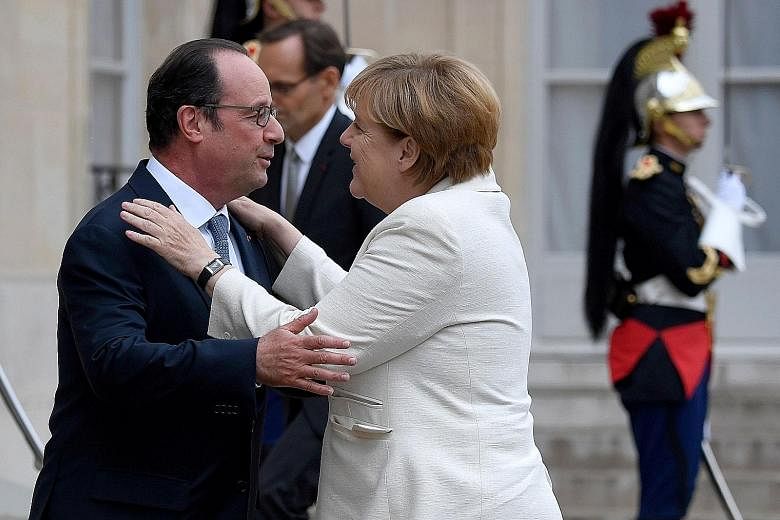European Union (EU) leaders are meeting today to chart a new course for their continent after Britain leaves the union.
Following ideas and measures to "enhance security and prosperity" put forward by European Commission (EC) president Jean-Claude Juncker earlier this week, today's meeting of the heads of state and government of EU member states in the Slovakian capital of Bratislava is billed as the start of Europe's relaunch.
But many of Mr Juncker's proposals remain highly controversial inside the union itself. And reviving the spirit of cooperation which Europe needs to regain its political bearings will require more than a few bureaucratic initiatives.
In his State of the Union speech to the European Parliament on Wednesday, an event consciously mimicking the annual reports that United States presidents make to Congress, Mr Juncker, who heads the EU executive, admitted that Britain's decision to leave the EU amounts to an "existential crisis" for the organisation.
Yet he also presented it as an opportunity to implement projects that the EU has discussed for years, but which could not be implemented because of British objections. Chief among these is the creation of a European military command structure to ensure better coordination between the continent's armed forces.

And yesterday, former Finnish prime minister Jyrki Katainen, now an EC vice-president, revealed that EU officials are working on a plan to issue "European defence bonds" to fund fresh investment in drones, ships and a variety of electronic devices and networks designed to help police Europe's porous borders and fight terrorism.
In theory, this makes sense. Although most European countries are part of the US-led Nato military alliance, they should have the capacity to launch military operations on their own. The Europeans should also use their defence budgets more wisely: As a whole, yearly EU defence spending is two-thirds that of the US, but the EU has nowhere near two-thirds of the defence capabilities available to the US military, largely because EU military spending is inefficient.
But in reality, most of the suggested solutions do not address Europe's fundamental security problems. There is no single instance where European governments were prevented from launching a military operation because they did not have a unified headquarters; the reason for inaction is that Europe cannot reach consensus on what should be done.
And although defence spending needs to be more efficient, the real problem is not the absence of coordination mechanisms but, rather, the desire of individual governments to protect their own defence industries. Besides, if Europe is so keen to get new military capabilities, a better and cheaper route may be to buy US equipment off the shelf today, rather than to spend years and sink billions in inventing capabilities that the Americans already have.
Still, German Chancellor Angela Merkel, French President Francois Hollande and Italian Prime Minister Matteo Renzi are likely to table at the summit today a set of military proposals, not because these are either urgently required or particularly thought out, but because they amount to the clearest indication that the EU will not be held back by Britain's departure.
But the defence proposals will meet with scepticism not only from new EU member states such as Poland, which have no interest in devising theoretical new defence structures, but also from neutral countries such as Ireland or Finland, which will need to hold referendums before they can approve the creation of new European defence structures. And, given the British experience, referendums are precisely what no European government now wishes to contemplate.
EU leaders will also discuss other initiatives to relaunch their union, including measures to bolster economic growth and employment. But they will also be confronted with a different vision of their future, put forward by former Polish prime minister Donald Tusk, now in charge of the European Council, which brings together all the EU heads of government.
Unlike Mr Juncker, Mr Tusk believes that Europe's response to Britain's departure should not be more integration, but less. "Giving new powers to European institutions is not the desired recipe," he wrote in a letter that he sent to governments before today's summit. "National electorates want more influence on the decisions of the union," he added.
It is unlikely that this fundamental dispute between those arguing for more integration and those arguing for less will be resolved soon. Nevertheless, the EU will stand united on one basic point: Britain should be asked to pay a high political price if it wishes to leave the EU but still retain the benefits of free trade with Europe.

